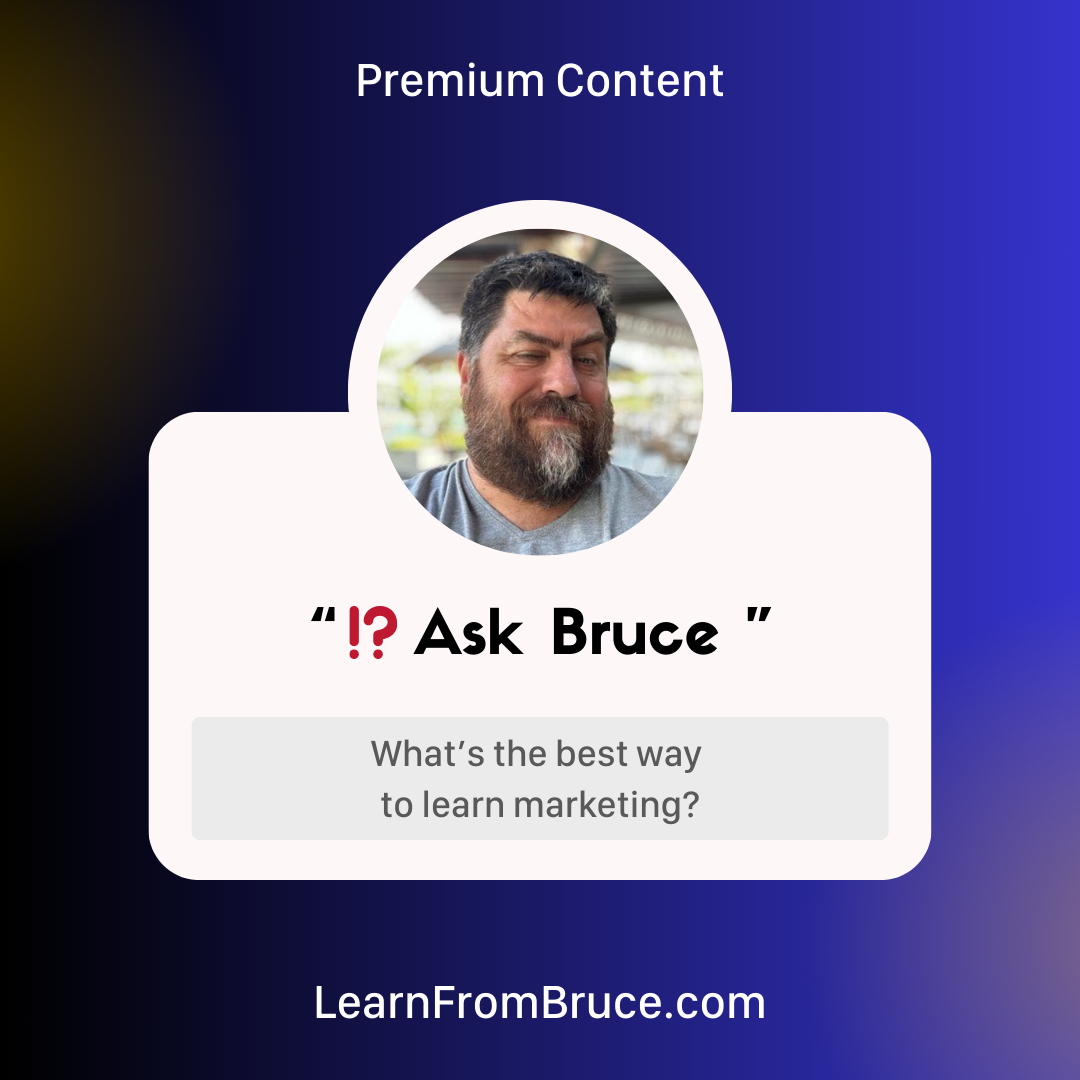📌
In this newsletter, I will expand on where we left off in
the previous newsletter with data, new recommendations, links and books for further reading, and different learning scenarios for different needs. Enjoy your reading.
🏁 Introduction
Hello, I'm Burak!
In this article, I am trying to answer the question "How do I learn marketing?" by using different learning methods through my own marketing journey. I tried to include my entire learning process in this article, from theoretical courses at the university to real experiences I had while selling in the field; from failed initiatives to agency career and up to today.
Along the way I also tackle a few other questions:
“Why do we have to keep learning all the time?
What does learning marketing give us?
How should we learn?”
Besides practical tips, you’ll also find—in the final section—an actionable learning plan tailored to your level, plus book and podcast recommendations. If you have no idea where to start, this article might be a good launching pad.
⁉️ What?
💬 My marketing learning journey
🎓Marketing Education
I was first introduced to marketing through an "Introduction to Marketing" class during my Business studies. Like many others, I found ads captivating, but I had never really considered the theory behind them. The curriculum revolved almost exclusively around Philip Kotler’s 4Ps. In hindsight, that education did little to shape me into a marketer.
🏦 Banking Career
My first professional job was in banking—but not in areas like treasury, credit, or investments. I worked on the front-line sales team at a branch, where my main responsibility was to find new clients and sell banking products to both new and existing customers. I wished I could apply what little I had learned about marketing, but there was never a real opportunity to do so.
My second role was in the mortgage marketing department, managing distribution channels. Using what I’d learned in sales, I tried to increase the number of loan applications the bank received from estate agents and online portals. I was reading about marketing, but it was hard to turn what I read into part of my job.
🚀 Entrepreneurship
My life changed completely when I decided to start my own business. Banks were very bad at collecting loan applications online, and this gave me the idea for "Doctor Mortgage." At that time, big banks with many branches didn’t care much about digital. They knew it was important but still didn’t invest. Only a few companies were active online. I had built some websites before, so I thought it would be simple: build a site, get applications, and make deals with banks. But it wasn’t that easy.
Since I had no money, I had to do everything myself. I already knew how to use Joomla, change website themes, and write content—but I had to get much better, quickly.
I also had to learn many new things—how to design a logo, create a brand identity, basic brand strategy, positioning, content management, analytics, SEO, online advertising, CRM, server maintenance, and beginner-level HTML/CSS/PHP—all within three years. I learned because I couldn’t pay anyone else to do these things.
🎨 Agency Career
“Doctor Mortgage” didn’t work out, but I learned a lot and gained strong digital marketing skills. In my last agency job, I used everything I had learned—but this time for clients. Each new client taught me something, and that knowledge helped me get the next one.
Later on, I had time to learn the theory behind what I had done. I already knew what to do from experience. Books and research taught me why it worked. I started writing, talking, and sharing what I learned. This helped me connect practice with theory and become a better marketer.
🔑 Quick Lessons from My Journey
- University—or theory on its own—is never enough to become a marketer.
- Real sales experience—talking to customers—gives you a huge edge.
- Lack of resources isn’t an excuse; it’s a learning opportunity. Necessity is the greatest motivator.
- Failure can teach you more than success.
- Formal education isn’t the direct route to becoming a marketer—but understanding why you do what you do does make you better.
To give you simple and helpful advice, I looked at trusted studies about how people learn and combined them with what I’ve learned from my own journey. I hope they’re useful as you learn too.
⁉️ Why?
📙 Why Should I Keep Learning?
- The spread of digital access is expected to be the most transformative trend—both within and beyond tech. 60 % of employers expect to transform their businesses by 2030. *
- On average, workers expect two‑fifths (39 %) of their skills to be disrupted or obsolete between 2025‑2030. *
- If the global workforce were 100 people, by 2030, 59 would need reskilling. Employers think 29 of them can be upskilled in their current roles and 19 can be redeployed elsewhere in the organization. *
- According to Harvard Business Review, the average shelf‑life of a skill is now under five years—sometimes 2.5. (HBR).
- Average skill lifespans according to a study from 2020, before the AI boom: *
- ⏳ Perishable Skills < 2.5 years – rapidly updating tech skills, company‑specific policies, proprietary tools
- 🧩 Semi-durable Skills < 5 years – foundational frameworks in specialised tech & processes
- 🧠 Durable Skills < 7,5 years – design thinking, project management, communication, leadership
In short, gaining skills isn’t optional; it’s mandatory—especially in fast‑moving fields like digital marketing.
The rest of this article continues under the following headings for paid subscribers:📘 Why Learn Marketing?📗 Economic Data & Experiential Learning👋 My Reasons for Learning⁉️ How? * ☝️ 1. The 70‑20‑10 Rule * ✌️ 2. Experiential Learning (Kolb) * ❓ Which Method When?✅ Action Plan: Start at Your Level📖 Further Reading, Listening & Watching🧩 Closing: A Final Word on Learning Marketing
Become a paid subscriber to read on!
